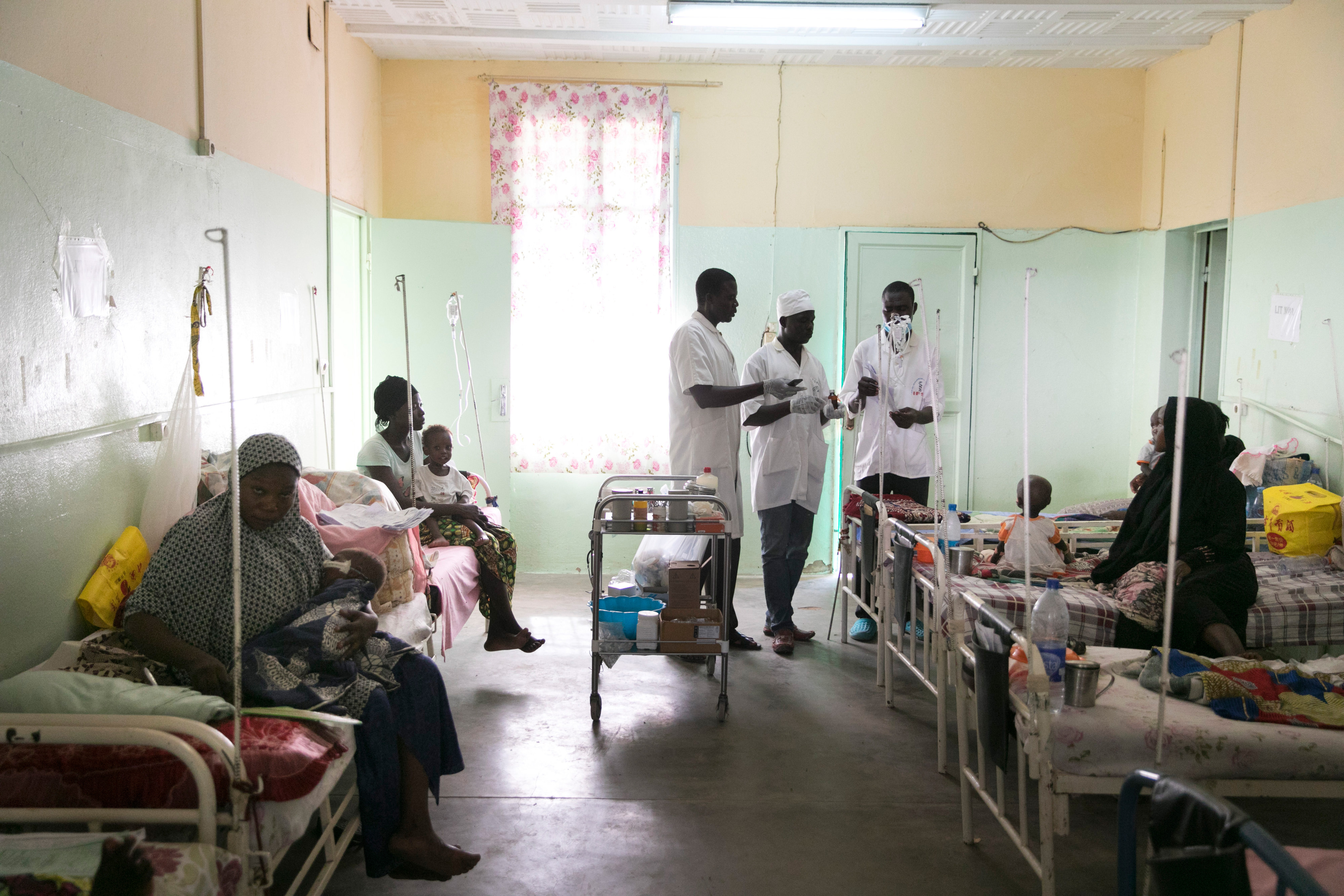Social situation Economic and social participation severely restricted
Health facility for malnourished children, Notre Dame des Apotres in N`Djamena, Chad
Chad’s population consists of about 200 ethnic groups that speak different languages. Informal networks and clan and family structures play a significant role in all regions of the country.
Around 30 per cent of its roughly 18.3 million people are living in extreme poverty. The proportion of undernourished people is equally high. Life expectancy is 53 years. The child mortality rate is one of the highest in the world. About one in ten children die before the age of five. The number of women who die during pregnancy or childbirth is alarmingly high. Only around half the population has access to basic water services, and just 11 per cent has access to properly managed sanitation. Only 12 per cent of the population has access to electricity, and in rural areas, the number is as low as 2 per cent.
Humanitarian crisis
Chad has repeatedly been hit by droughts and floods. In the summer of 2024, heavy rainfall caused severe floods, especially in the southwestern part of the country. According to figures published by the UN Office for the Coordination of Humanitarian Affairs (OCHA), almost 2 million people were affected by the floods, Residential and school buildings, health facilities and roads were destroyed, arable land was flooded.
In February of 2024, the Chadian government declared a state of food and nutritional emergency. According to OCHA, six million people were dependent on humanitarian assistance in February 2024. The floods have exacerbated this situation further.
Education
Chad’s population is growing at a rate of roughly 3 per cent a year. Almost half the population is under 15 years of age. There is a lack of education and employment prospects for young people.
Significant gaps exist in the education system. Around one primary school-age child in five is not in school, with the proportion of out-of-school children being much higher for girls than boys. Less than half of all children complete primary school. Illiteracy affects approximately three quarters of the adult population.
Gender equality
In its constitution, Chad commits itself to gender equality. However, women are still severely disadvantaged in all spheres of life. Violence against women and children is widespread but rarely sanctioned. Effective mechanisms to deal with complaints about human rights violations do not exist.
As at: 15/11/2024
